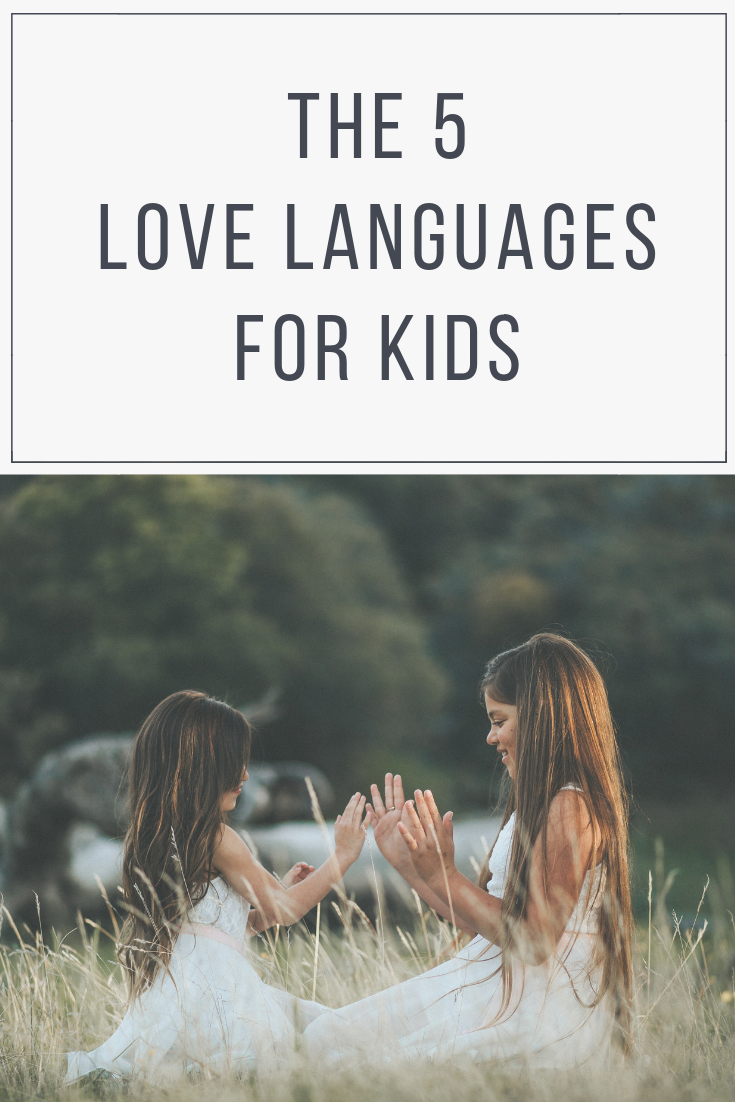The 5 Love Languages For Kids
A positive, connected relationship with our child is the foundation they need to thrive in their future.
This relationship is strengthened when we communicate our love towards them in a way they understand and receive.
Many times we can think that we are showing our child that we love them, but it’s not being received that way by our child.
In his book “The 5 Love Languages of Children”, author Gary Chapman shares that every child has a love bucket.
When this bucket is filled with love, children will be the best versions of themselves & cope more resiliently with life’s challenges.
But when this bucket is low on love, children will not cope as well with challenges & there will be many more behavioral challenges to deal with.
Gary shares that one of our main priorities as a parent is to keep our child’s love bucket full.
The main way we fill our child’s love bucket is to speak their primary love language.
When our personal love language is different to our child’s, we can be doing things that we believe communicate our love towards our child, but it’s getting lost in translation because they receive the message of love differently to us.
This is why it’s important for us to be aware of our own & our child’s love language in order to communicate more clearly.
The 5 love languages are:
- Quality time
- Receiving gifts
- Words of affirmation
- Acts of service
- Physical touch
IDENTIFYING YOUR CHILD’S LOVE LANGUAGE
Even though its important we demonstrate our love for our child through all 5 love languages, our child will have 1-2 in particular that will make the biggest difference to their love bucket being full.
There are two main ways we can identify our child’s primary love language:
- Notice how they show their love towards you.
- Demonstrate all 5 love languages & carefully notice their response with each one.
As you use some of the suggestions below to communicate your love for your child, notice which ones have the biggest impact.
Once you have identified your child’s primary love language, you can be more intentional to fill up their love tank on a regular basis.

THE 5 LOVE LANGUAGES FOR KIDS
1. QUALITY TIME
This child feels most loved with individual, focused attention.
They may say things to you such as “Come here, I want to show you something”, “Can you play with me?”, or “watch this!”.
IDEAS FOR QUALITY TIME:
- Take your child with you while you’re doing errands
- Sit next to them, even reading a book, while they play
- Create a small routine that you do together every day. eg. reading together at bedtime, going for a walk after school/work, cleaning up dinner together
- Technology free family dinners – no phones or devices allowed
- Create a weekly “date” with your child that is undivided time together. Date ideas could be: picnic or park hangout, watch a movie together, go to the library, have breakfast together, ice-cream after school
- Listen to your child’s stories & respond thoughtfully to what they share
- Add extra special days either monthly or quarterly where you spend the whole day together (without other family members)
2. RECEIVING GIFTS
This child feels most loved by receiving gifts.
These don’t have to be expensive gifts. It is more important that they are thoughtful & presented in a beautiful way to show you care.
IDEAS FOR GIFTS:
- Leave a little treasure on their bed or flowers from the garden in their bedroom
- Add a special treat in their lunch box at school
- Specially wrap up a small toy or something they’ve been wanting
- Use stickers & star charts
- Send a small package in the mail for them to receive in the letterbox
- Pick up an unexpected treat for them when running errands
- Buy a book for your child & wrap it up
- Create a special photo book or journal of writings between you both
- Prepare a treasure hunt outside of lots of things to find
3. WORDS OF AFFIRMATION
This child feels most loved by receiving words of positive affirmation & encouragement.
They may say things like “talk to me!”, or “what do you think about this?”. They beem when you encourage them & offer beautiful encouragement back to you.
IDEAS FOR WORDS OF AFFIRMATION:
- share some encouragement routinely (eg. when they first wake up or when they are going to sleep at night), such as “you’re my favorite guy to spend time with”, or “I love being your mommy”
- Leave small love notes in their lunchbox
- Share with them all the positive things others have said about them without them knowing
- Share specific encouragement about what makes them one of a kind & special
- Praise their accomplishments
- At special occasions, go around the family & everyone shares something they love about that person
- Daily say “I love you”
- Write a special card with encouragement or notes on the bathroom mirror
4. ACTS OF SERVICE
This child feels most loved by having things done for them, that they usually have to do for themselves.
This is not to undermine a growing need for children to become self reliant, but instead communicate that you are thinking about them by helping & thoughtful gestures.
IDEAS FOR ACTS OF SERVICE:
- Help them with their homework or usual daily chores
- Assist them with larger tasks such as re-organizing their room
- Do random acts of kindness for others, together
- Fix something important to them that is broken
- Thoughtful gestures such as warming towels in the dryer on a cold morning, or a snack after a long day at school
5. PHYSICAL TOUCH
This child feels most loved by safe physical touch.
This child is likely constantly in your space & all over you, saying things like “cuddle me”, “chase me”, “tickle me”.
IDEAS FOR PHYSICAL TOUCH:
- Pat them on the back
- Back massage
- Snuggle together while watching tv
- Have them sit on your lap while reading them a story
- Play with their hari
- Give them extra cuddles
- High fives
- Tickle monster game
- Have a dance together
- Give them a piggy back or should ride
- Hold hands together when walking
- Good morning & goodnight hugs
- Goodbye hugs & kisses
Note: many children, especially girls, do not receive regular safe physical touch from their dads, especially as they move towards adolescence. It’s vitally important that parents remain physically affectionate to their children, no matter their age. Because it is a primary need, if they don’t find it appropriately from their parents, they will look for it in other less appropriate relationships.
Children benefit from receiving love through all 5 love languages. However they will have 1-2 main love languages that truly fill up their emotional love bucket.
When we can understand our child’s primary love language & intentionally work to make sure they are filled up, it results in a child that feels deeply loved, which increases their resilience in life.











